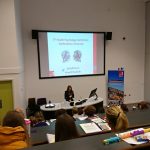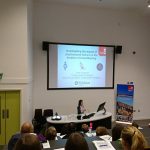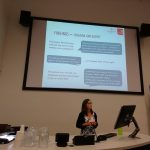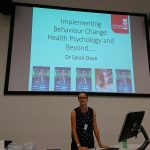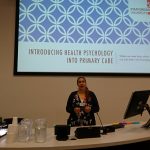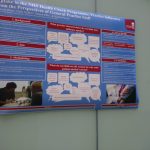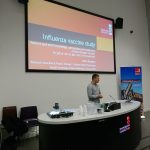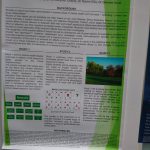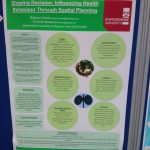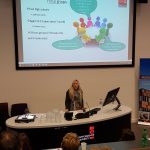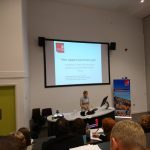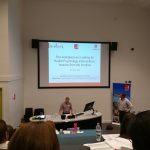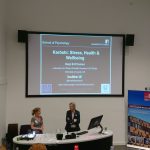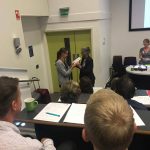Dr Maria Panagiotidi (Lecturer in Psychology & member of the Staffordshire Centre for Psychological Research) blogs about attending a recent Cyberpsychology conference:
A few weeks ago, I had the chance to attend the 22nd Annual CyberPsychology, CyberTherapy & Social Networking Conference (CYPSY22). CYPSY is an international networking and sharing platform for researchers, clinicians, policymakers and funding agents to share and discuss advancements in the growing disciplines of CyberTherapy and Cyberpsychology. This year’s conference took place in Wolverhampton and consisted of three days of fascinating sessions on the latest developments in the relatively new filed of Cyberpsychology. The conference was jointly organised by the Interactive Media Institute in collaboration with the University of Wolverhampton, and Cyberpsychology Research at the University of Wolverhampton (CRUW), the Virtual Reality Medical Institute and the International Association of Cyberpsychology, Training, & Rehabilitation (iACToR). The topics covered various areas related to the way humans interact with technology, from virtual reality applications and cybersecurity research to Pokémon Go!
In the opening keynote of the conference Professor David Wall, who researches cybercrime at the University of Leeds, explored the impact of new technologies on cybercrimes and identified the generations of cybercrime and offender behaviour. The talk was focussed on the need to understand the various pathways into cybercrime taken by offenders, their motivations and the organisation of cybercrimes in order to frame interventions. Dr. Elaine Kasket, an HCPC-Registered Counselling Psychologist, gave the second keynote speech about how digital-age technologies are affecting bereavement and mourning on social networking sites and ways our online data could both facilitate and disrupt the mourning process for our loved ones after we are gone. The final keynote was given by Dr Daria Kuss was focussed on Internet and Gaming Addiction and empirical evidence.
Cyberpsychology is an interest of mine (see my blog post on my study on ADHD and problematic video game play) but this was the first time I attended a conference focussed on this area. The atmosphere was very friendly, inspiring, and welcoming to anyone with an interest in Cyberpsychology. It was a great opportunity to meet potential collaborators and discuss research ideas with field experts. Looking forward to presenting my work in a future CYPSY conference!
The Department of Psychology at Staffordshire University offers an optional final year undergraduate module on Cyberpsychology. The module brings together psychological theory and research methods to explore contemporary issues in the field of Cyberpsychology.
The Department of Psychology at Staffordshire University  offers a range of undergraduate and postgraduate degrees in Psychology at the University’s £30 million Science Centre in Stoke-on-Trent.
offers a range of undergraduate and postgraduate degrees in Psychology at the University’s £30 million Science Centre in Stoke-on-Trent.
Interested in a Psychology degree? Come to an Open Day – for further details, and to book your place at an open day, please visit: http://www.staffs.ac.uk/openyourmind/
For more information about the Psychology degrees on offer at Staffordshire University please visit the below pages:





